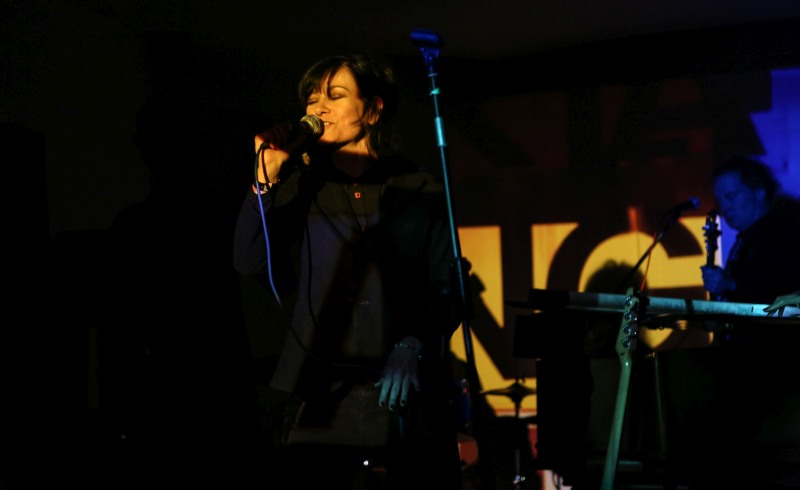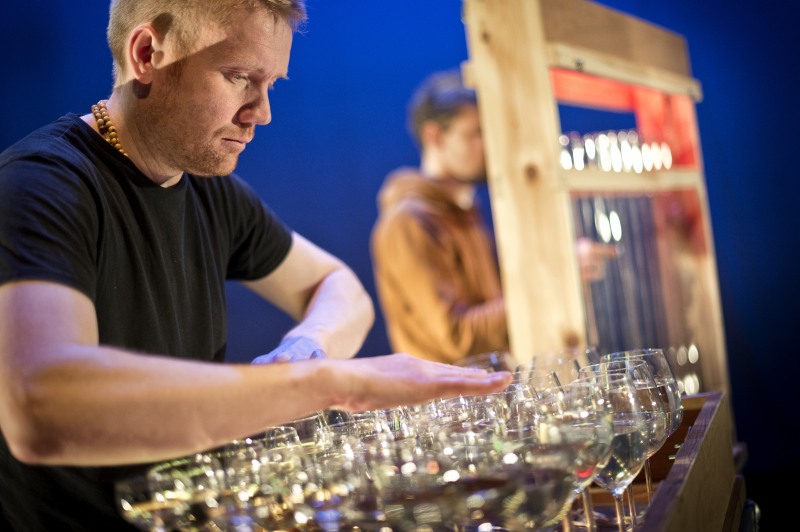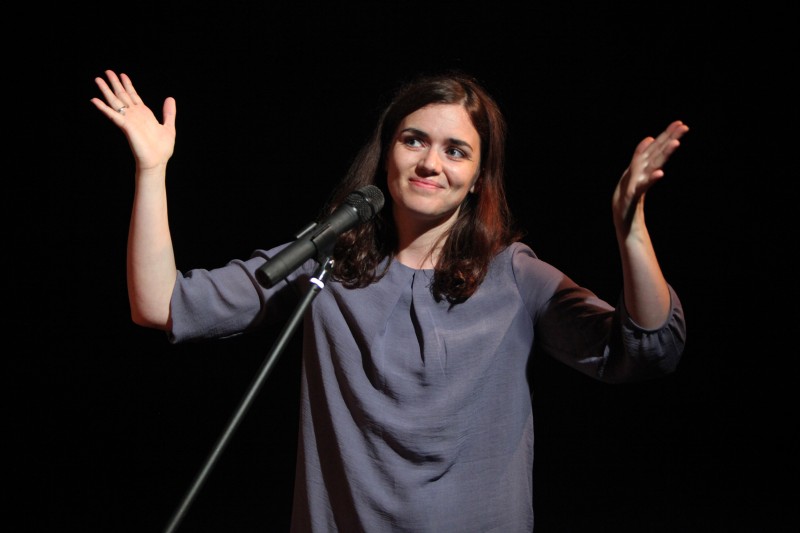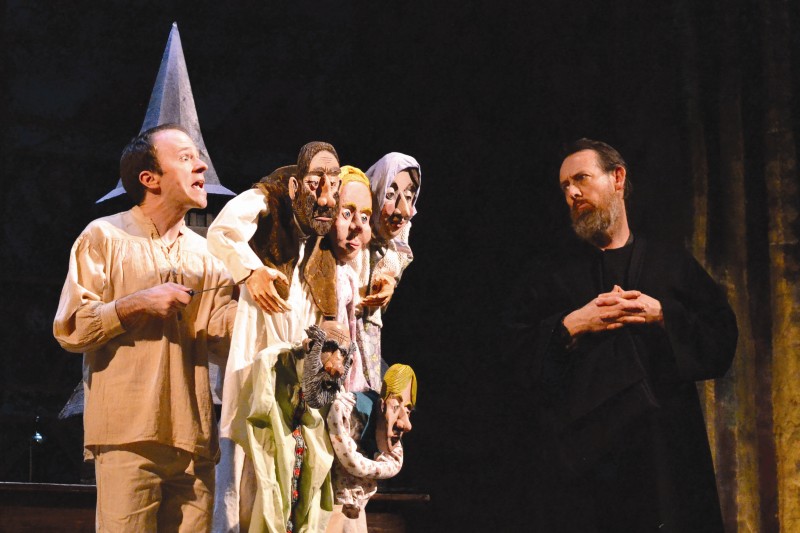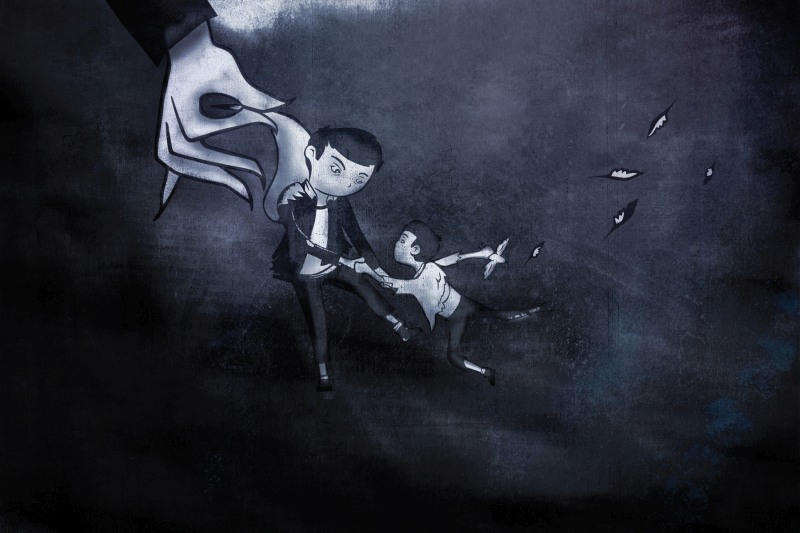 Raymondo is the whimsical tale of a boy and his brother, and their adventure after they escape from an underground cellar in which they have been trapped for six years. Told by writer Annie Siddons, the story is intricate and lyrical, performed in a style akin to a spoken word poet, musical and rhythmic storytelling. Siddon’s warm northern voice is melodious and engaging. She feels a welcoming and familiar guide to this increasingly edgy adventure, for this is a fantastical storytelling world that is nevertheless peopled by some of the most brutal features of recognisable life. It feels almost like a story you might tell to mask a trauma. Siddons is joined on stage by musician Daniel Green, who underscores the piece with an electric guitar, adding both tone and a driving rhythm that gives the piece a feeling of fatal inevitability.
Raymondo is the whimsical tale of a boy and his brother, and their adventure after they escape from an underground cellar in which they have been trapped for six years. Told by writer Annie Siddons, the story is intricate and lyrical, performed in a style akin to a spoken word poet, musical and rhythmic storytelling. Siddon’s warm northern voice is melodious and engaging. She feels a welcoming and familiar guide to this increasingly edgy adventure, for this is a fantastical storytelling world that is nevertheless peopled by some of the most brutal features of recognisable life. It feels almost like a story you might tell to mask a trauma. Siddons is joined on stage by musician Daniel Green, who underscores the piece with an electric guitar, adding both tone and a driving rhythm that gives the piece a feeling of fatal inevitability.
The language sways between subtle beauty and sharp insight as we are introduced to lovely concepts such as Raymondo’s ‘Cape of OK’ which makes the wearer feel better, and the dark impulses that drive child neglect and corporate sweatshops. It is clear that Siddons has superb skill in storytelling and wordsmithery, and the music does well to evoke a dreamlike atmosphere for the storyteller. The homely stage design – all tasselled lampshades and comfy carpets – effectively embodies the tension at the heart of the piece, unsettlingly undercut by the tale’s sharp tail. There’s some lovely use of quite stark colour in the lighting design through these practical lamps.
At times the story is a little too dense and the constantly unfolding narrative becomes a little hard to follow as the imagery is so rich and fantastical. The sporadic musical interludes break up the rhythm of the piece, which can border on repetitive. What I most longed for, though, was a sense of release and this is a tall order in single-voiced storytelling world where the control of the storyteller and her presence in the room with you interrupts your identification with the story itself. This is a lyrical piece whose commentary is studded with sharp teeth in true fairy story style, but the real world qualities and consequences that Siddons also seems to want to bring into play are left toothless in a context that constantly emphases authorial control at its heart.

